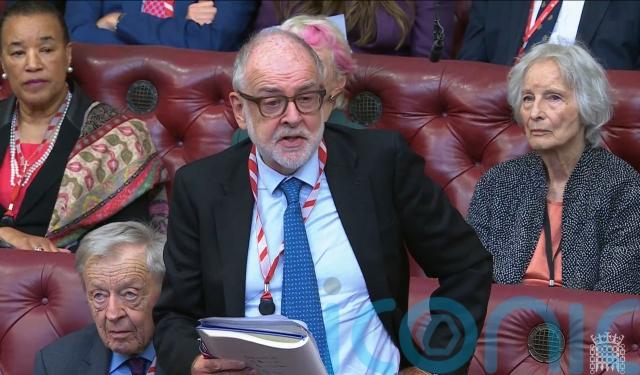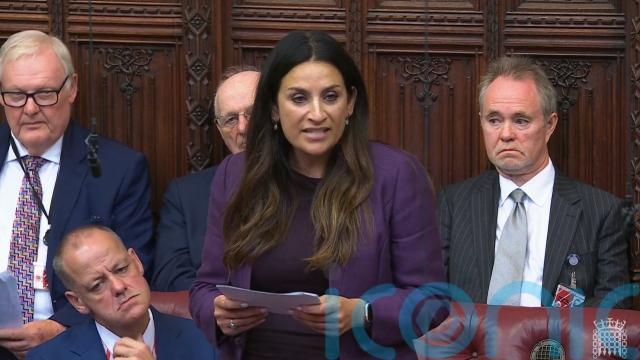
Peers have been warned against delay tactics as a record high number of amendments were tabled to the proposed assisted dying law, but opponents insisted the Bill is “full of holes”.
The House of Lords will again debate the Terminally Ill Adults (End of Life) Bill on Friday – with more than 900 changes suggested to the proposed law.
This is believed to be the highest number ever put forward for a piece of backbench legislation, and prompted a group of 65 peers to send a joint letter to colleagues reminding them of their role in the lawmaking process.
Signatories, including scientist and broadcaster Lord Winston, said the task of peers is “to test and refine the Bill where genuine improvements can be made, while respecting both the will of the Commons and the overwhelming support of the public”.
They added it was “not our role to frustrate the clear democratic mandate expressed by elected members”.
Other signatories included the former Whitehall chief Lord O’Donnell, former Labour leader Lord Kinnock and previous Royal College of Nursing president Baroness Rafferty.
The Bill was narrowly approved by MPs in the House of Commons earlier this year, and received an unopposed second reading in the Lords in September.
This is the furthest any such legislation on assisted dying has progressed through Parliament at Westminster – although the incoming Archbishop of Canterbury Dame Sarah Mullally has previously said she and her Church of England colleagues are likely to bring an amendment to vote on the principle of the Bill, which she will vote against.
A small select committee of peers took evidence in recent weeks ahead of the Bill’s return to the House for detailed line-by-line scrutiny on Friday.

Baroness Luciana Berger, who sat on that select committee, said they heard evidence “from a wide range of professional bodies and organisations”, including Britain’s human rights watchdog “that strongly refuted any suggestion this Bill is either safe or workable”.
She added: “We also heard that palliative care developments have slowed in legislatures that have introduced assisted dying.
“This Bill is full of holes which vulnerable people will fall through and be harmed if peers don’t act to change and amend it.”
Ahead of Friday’s debate and in recognition of the contentious nature of the legislation and the strongly held views held on either side of the divisive issue, Lord Kennedy of Southwark, the chief whip in the Lords, urged “courtesy and respect” among those taking part.
This was echoed by Labour former lord chancellor and justice secretary Lord Falconer of Thoroton, who is taking the private members’ bill through the House.
The Bill will become law in England and Wales only if both the House of Commons and House of Lords agree on the final drafting of the legislation – with approval needed before spring when the current session of Parliament ends.
With the clock ticking, there have been concerns among some supporters of the law change that opponents in the unelected House would try to block it or “talk it out” so that it runs out of time and falls.

When the proposed law was last debated in the Lords chamber, it was branded a “licence to kill Bill”, while others argued it would “devalue the importance of human life”, and suggested it could lead to death becoming the “default solution to perceived suffering”.
If it does pass into law, the Government has four years in which to get an assisted dying service into place, meaning it could be 2029/30 before the first assisted death happens.
The legislation proposes allowing terminally ill adults with fewer than six months to live to apply for an assisted death.
This would be subject to approval by two doctors and a panel featuring a social worker, senior legal figure and psychiatrist.
According to the parliamentary authorities, while some Bills have had more amendments tabled in total at committee stage, it sets a possible record for the number submitted in the first full list of suggested changes and is almost certainly unprecedented for committee stage of a private members’ bill.
Four days of committee stage have been scheduled so far, although more could be added.
Subscribe or register today to discover more from DonegalLive.ie
Buy the e-paper of the Donegal Democrat, Donegal People's Press, Donegal Post and Inish Times here for instant access to Donegal's premier news titles.
Keep up with the latest news from Donegal with our daily newsletter featuring the most important stories of the day delivered to your inbox every evening at 5pm.